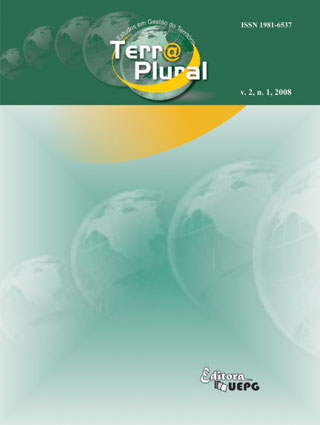Faxinal territorialities and educational public policy: comprehending reality, limits and possibilities
Keywords:
Territorialities, Public policies, Faxinal traditional populations, Paraná,Abstract
Abstract: The reality of rural Brazil in the 21st century is still dominated by constant land conflicts, as large estate owners continue monopolizing land resources and, thus, excluding other segments of the rural population. Confronted with such a situation, social movements, in particular those of traditional populations, demand their rights to land resources, the production and reproduction of their livelihood and the insertion of their specific characteristics into public development policies that strengthen their persistence on their lands. The article presents preliminary results of a research on territorialities and educational politics directed towards rural populations, in particular to Faxinal habitants, and gives evidence of how these educational politics do influence rural daily life. For this purpose, first, it is necessary to contextualize the emerging reality of traditional populations as social movements focusing on the Faxinal population. Secondly, some reflections are discussed for the case of Paraná on the territorial conflict between Faxinal habitants and Agrobusiness, especially, how such a conflict threatens the traditional land use and land tenure pattern of these populations. Then, a small overview is given on the linkages between traditional territorialities and educational politics in relation to the national context. Finally, the consequences of such educational politics are discussed for the faxinal territorialities and their population.
Downloads
Downloads
How to Cite
Issue
Section
License
Revista Terr@ Plural will obtain the auctorial rights for all published texts. This also implies that the text can be published anywhere in the world, including all rights on renewal, expansion, and dissemination of the contribution, as well as other subsidiary rights. The authors get permission to publish the contribution in other media, printed or digital, it may be in Portuguese or translation since the publication is credited to Revista Terr@ Plural. It allows the self-archiving of published articles in institutional repositories, thematic repositories, or personal web pages in the pdf version downloaded from the journal's site.















